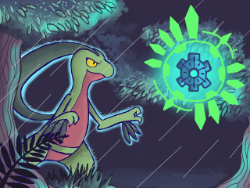
ShadeStrider
-
Posts
1331 -
Joined
-
Last visited
-
Days Won
3
Single Status Update
See all updates by ShadeStrider
-
Also, for me, as a novice writer, I'm going with the principle of "If it doesn't entertain me, then how can it possibly entertain other people?"
If by chance, I do write something that gains a lot of Critical Acclaim, but I end up reading it and feeling bored, then I'll probably feel like I just cashed in on what either the public or critics wanted, and I don't want that. I like having this thing called "Artistic Integrity". If it can entertain me and the audience, then Its worthy of being called a masterpiece.
That being said, this does not mean to disregard other people's criticisms. If enough people are telling you that there is a problem with your story, then there is a problem. Fix it. But also, make sure the criticism you are getting is good criticism. For example, if there is a massive plothole that ruins the integrity of your story, then that is a problem that needs fixing. If your sentence is poorly worded, then it needs fixing. But something like: "Cut down on the action scenes" is something that may or may not need fixing. Listen to the reasoning behind it, then decide for yourself whether it should warrant a fix and whether it messes with the mood and themes of your story.
Now watch as I become a corporate shill in 30 years. I bet young me would be embarrassed at how older me fared.
If I wrote something that was critically panned, but I put my own heart and soul into it, then I'll be proud. I'd listen to all the criticism, decide if it is valid or not, and if its valid, than I joyously agree that I wrote a terrible book. I can at least be proud of putting my own Ideas into it. But that's the point of editors, isn't it? To keep you from writing a terrible book.







